Pingle Ancient Town Posted by sasha on Nov 9, 2017 in Culture
After spending a few days in the big city of Chengdu, why not get out and experience a small scenic town? Pingle Ancient Town (平乐古镇 – píng lè gǔ zhèn) is the perfect place to go. Once an important stop on the Tea Horse Road (茶马古道 – chá mǎ gǔ dào), this riverside town is a nice place to relax and explore for a day or two. Let’s see what you can do with a few days in this scenic riverside town.
An Intro to Pingle
Pingle is located about 100km southwest of Chengdu, which only takes 1.5-2 hours by car or bus. It’s situated on the banks of the Baimo River (白沫江 – bái mò jiāng), and it has both an ancient dam and bridge along the river. Pingle is famous for its Ming and Qing Dynasty-ear residences and streets, as well as its banyan trees that are over 1,000 years old. The town itself is a bit touristy, popular with urbanites who flock here on the weekend to experience a bit of rural life. In a country that’s experienced mass urbanization in recent decades, it’s not surprising that city slickers now feel a bit of small town nostalgia and seek to escape the concrete jungle with a short visit here.
Pingle was apparently founded way back in 150 BC, and it was once the first town on the Tea Horse Road. Much of the town is not “ancient” at all, however, as you’ll find plenty of brand new buildings and cranes going up in the distance. That being said, it does still retain some of its history and charm, especially with the many riverside tea houses where people like to relax with a cup of tea and listen to the flowing river. Now let’s see what there is to do in this town.
Li Family Courtyard
Outside of town, you can visit the Li Family Courtyard (李家大院 – lǐ jiā dà yuàn) to see a Qing Dynasty-era home and fully functioning farm. This ancient family compound is a great place to see a traditional Sichuanese home. While there, we walked around in the tea farm and chatted with a few of the Li family members. They still sustain on farming, and they welcome tourists in free of charge. Of course, you are kind of expected to buy some tea.
Bamboo Sea
A great way to escape the selfie-snapping, quad-bike riding tourists in town is to go spend a night in the Bamboo Sea (竹海 – zhú hǎi), which is actually a forest. There are several guesthouses out here, where you can rent a room and enjoy a delicious dinner after spending a few hours walking through the sea of bamboo. Since Sichuan is home to so many giant pandas, you’d think that there would be a few here munching on the all-you-can-eat bamboo, but we didn’t spot any.
Jinhua Mountain
Another option is taking a short bus ride out of town to visit the scenic Jinhua Mountain (金华山 – jīn huà shān) for a nice and easy hike. We enjoyed breathing in the fresh air, hiking up the mountain, and admiring the many Buddhist statues. One elderly Chinese woman working there even welcomed us in for a cup of tea, and another led us through a ceremony wishing us a safe and enjoyable trip. There were no hordes of tourists here, no touts selling useless knick-knacks, and there wasn’t even a ticket office. We were happy that we had decided to go there instead of the overcrowded Mt. Emei.
Random Silliness
Of course, it wouldn’t be China without a bit of random silliness thrown in for good measure. Walking around town, we noticed several shops with bugs on sticks spinning around. I don’t think people were eating them, so perhaps they’re just a very odd souvenir.
Be sure to keep your eye out for some classic Chinglish signs as well. Chinese has a very poetic way of saying “Keep Off the Grass,” doesn’t it?
Travel Info
There are a few busses that leave from the Xinnanmen station in Chengdu every day. You can probably just walk up and get tickets, but as this is China, buying them a few hours in advance certainly doesn’t hurt. You’ve got plenty of choices for accommodation here, as it’s a very popular weekend and holiday destination. We stayed at the Zhen Zhen Family Guesthouse right across the street from the bus station. The owner is a very nice lady who speaks English, and our room was comfortable and cheap.

Build vocabulary, practice pronunciation, and more with Transparent Language Online. Available anytime, anywhere, on any device.



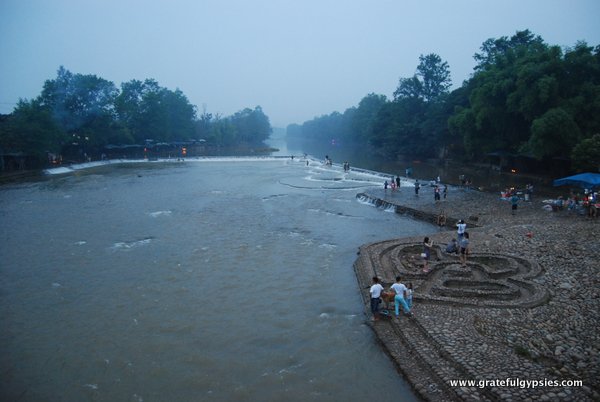
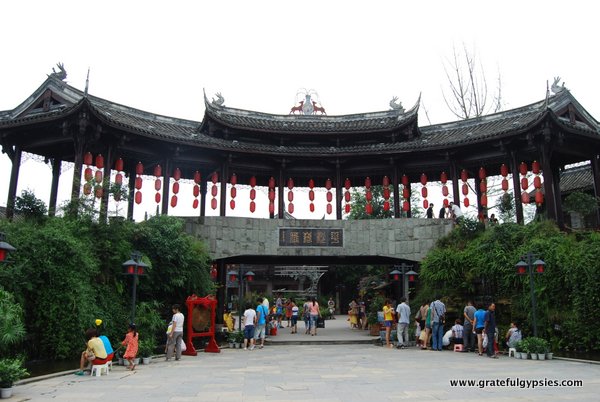
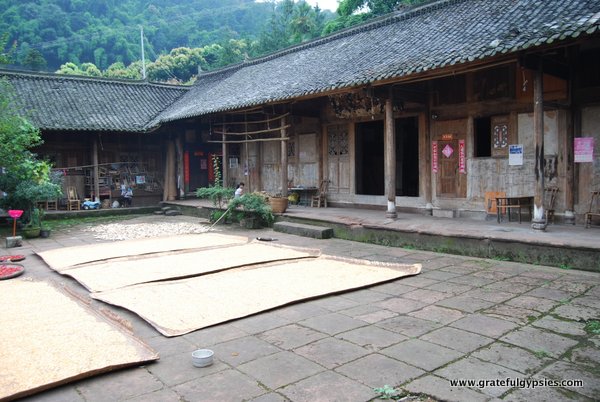
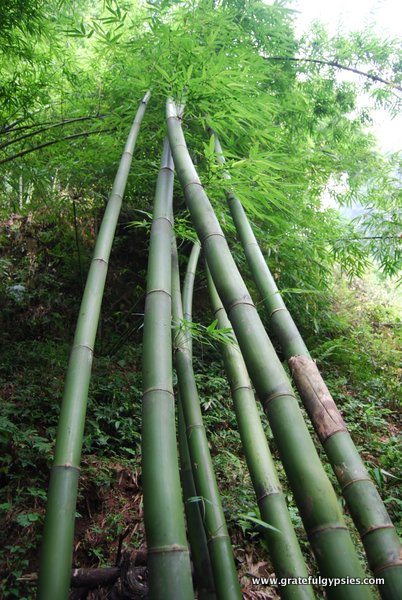
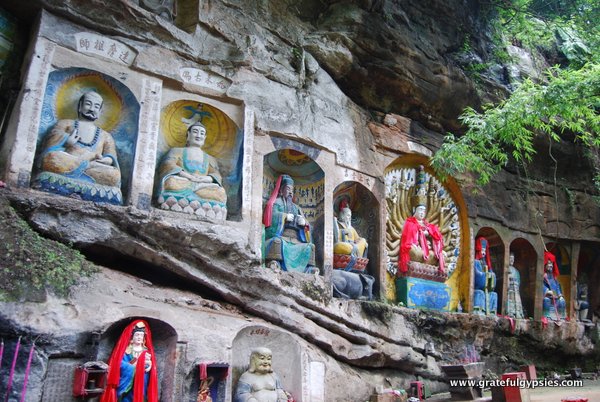
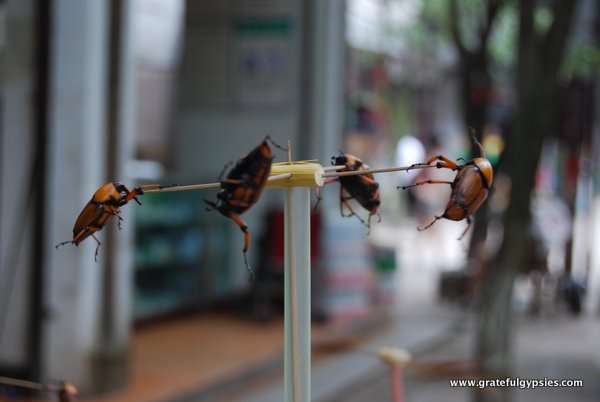

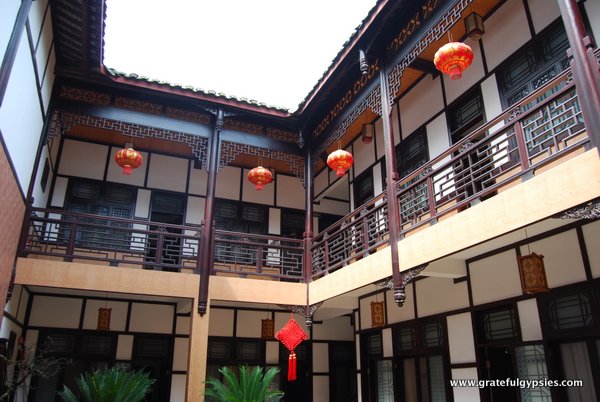

Leave a comment: